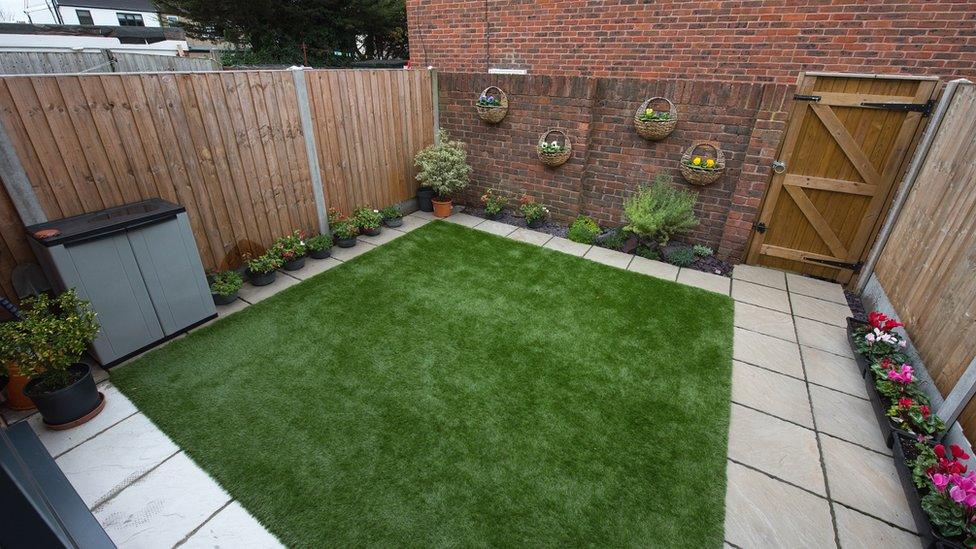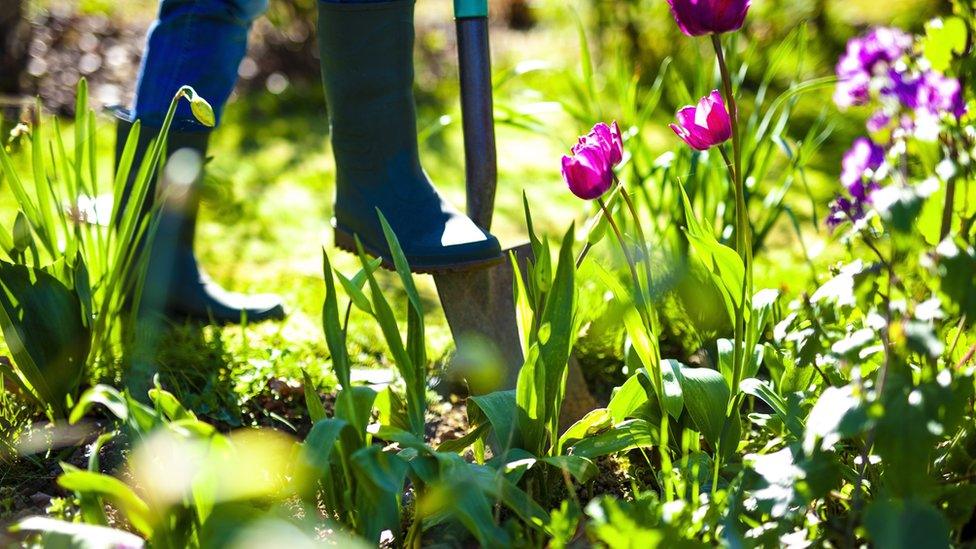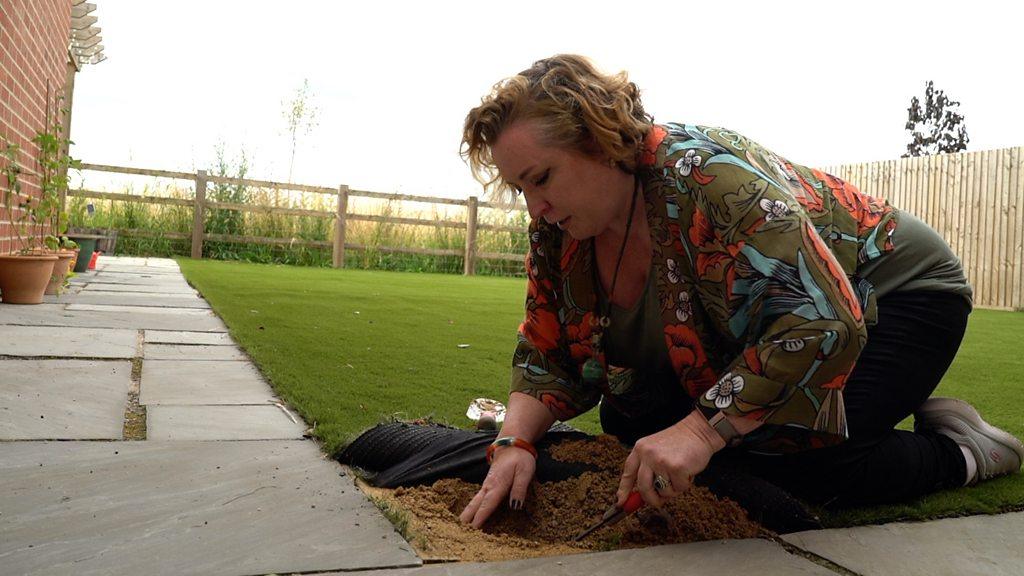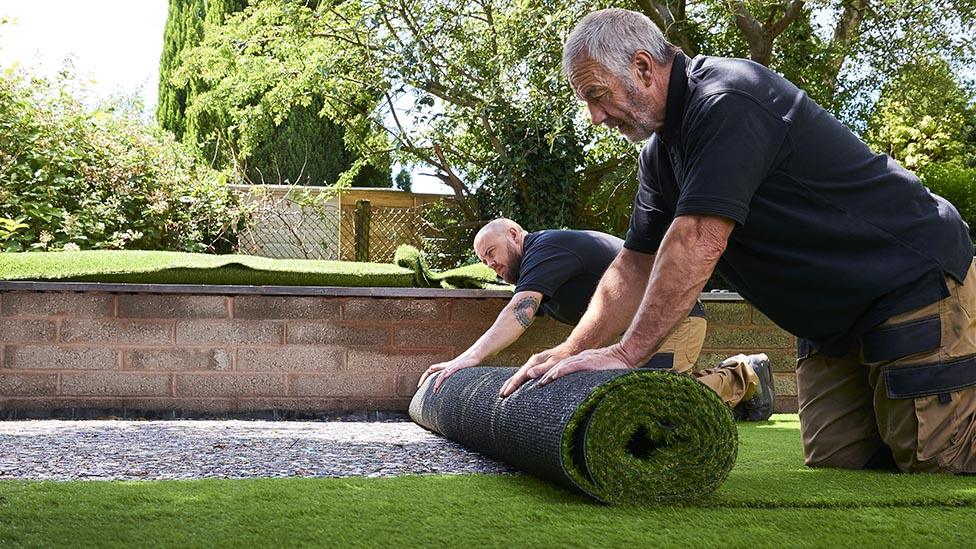Artificial lawns: Wales ban considered by minister
- Published

Minister Julie James said artificial grass "isn't the short-term solution it looks like for people"
The possibility of a Wales-wide ban on artificial grass has been raised by a government minister.
Climate Change Minister Julie James said there were "worrying reports" that the "toxicity coming off artificial grass" could be "quite alarming".
She told the Senedd she wanted to "explore proactively" whether Wales' new law banning some single-use plastics, external could be used for such a ban.
Fake lawns have become popular because they do not require mowing.
Ms James was responding to Plaid Cymru South Wales West MS Sioned Williams, who highlighted University of Sheffield research on how natural gardens cool urban areas and have a key role "absorbing rain, thereby reducing the risk of flash flooding, and offering much needed refuge, for wildlife".
"Artificial grass is made of plastic and other synthetic materials, which, despite the perception of being maintenance free, requires regular cleaning and has a life span of eight to 15 years, after which sustainable disposal can be challenging," said Ms Williams.
"Aside from reducing the benefits of natural gardens, using artificial grass carries other environmental implications, such as hindering the habitat of earthworms and insects, while the leaching of microplastics can harm wildlife."
Ms Williams said Swansea Council had pledged not to use artificial grass from now on, after she complained about its use in city regeneration work.
She wanted it banned in places the Welsh government controls, apart from sports pitches.
Watch: A campaigner calling for a new artificial grass tax shows the soil underneath plastic lawns
Ms James agreed that artificial grass has a "very, very bad effect on the local sustainability of a large number of areas in Wales".
"There are quite worrying reports, from a number of university sources, saying that the toxicity coming off artificial grass, if it's played on by children and so on, is quite alarming."
She said a public information campaign was needed explaining "why it isn't the short-term solution it looks like for people", as weeds come up through it and "it can be very difficult to clean, if an animal has been on it".
"We will be looking at all of our guidance and working with our local authorities to make sure that it isn't used in any publicly funded space," Ms James pledged.
The minister said she also wanted to "explore proactively" whether "our new single-use plastics bill" that "gave us the ability to add in other plastics for banning" would make a Wales-wide ban possible.
A senior Senedd member warned last December that the Welsh law banning some single-use plastics may not be in full effect until 2026.
It came amid questions over whether a ban on single-use carrier bags needs UK government permission to be fully enforced.
Related topics
- Published24 April 2023

- Published8 August 2022

- Published7 August 2022
